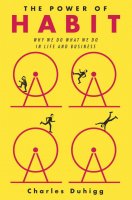Back to LaMonte Fowler's essay, for the fifth in this series.
Science is real. We know things because of science. Don’t be afraid of it. You have an iPhone and Facebook because of science. It’s your friend.
It's hard to respond to this without knowing what he means by being afraid of science. I've certainly never been afraid of science itself: growing up an avid science fiction fan, in an era when SF was more science than fantasy, in a family where anyone who was not an engineer was a mathematician. Math major in college with a heavy sprinkling of science and engineering courses—later I worked as a software designer in a university research lab. No, I never was afraid of science.
But here are a few things that do cause me concern.
Misuse of technology I've loved computers since paper tape. I think technology is wonderful. The Industrial Revolution was wonderful, too, but it had a dark side. It's foolish to believe the advances in computing, medicine, and agriculture, for example, can be safely accepted without serious environmental, ethical, and social considerations. So yes, I'm scared of science unbounded.
Science politics It doesn't take long working in the field to realize that scientific research is as plagued by prejudice, good ol' boy networks, and partisan politics as anywhere. It doesn't matter how good your research and reasoning are, if you run afoul of accepted doctrines, they may never see the light of day, and you're not likely to get funding. This is nothing new, having been around as long as science itself has, but it still scares me. If the work of Ignaz Semmelweis had not been ignored because it contradicted established tenets, much suffering and innumerable deaths would have been prevented. I'm afraid of missing important breakthroughs and making dangerous mistakes.
Science-as-religion Science is a wonderful servant but a terrible master and a worse deity. There are many people, usually professing themselves to be atheists, whose devotion to Science displays all the characteristics of the religious fervor they despise. "But what we profess is the truth," they may object. Q.E.D. Science fanaticism scares me as much as any other—maybe more so, since it's a fundamentalist faith that's flying under the radar.
Science isn't my friend. It's much too powerful and overarching to be friendly. It may be one of the greatest tools we have, but it's more like a chainsaw than a friendly nextdoor neighbor.
Global warming or “climate change” as the cool kids call it IS REAL. Anyone who tells you it’s not real is not a smart person and probably should not be dressing themselves or caring for children.
Once again skating past the gratuitous insults, I have to say that if Fowler thinks the objection people have with the current climate change ideology is "it's not real," then he's not listening very well. Sincere and serious issues that I have heard include:
- Questions about the reliability of the computer models used to predict the future—especially from those of us who have seen how badly computer models have sometimes performed in other areas
- Questions about how much of the change is due to man-made causes and how much is part of a natural cycle
- Questions about the efficacy, sustainability, and social consequences of any actions we might take to ameliorate the situation—especially from those of us old enough to have lived through the time when the worry was global cooling, and it was seriously proposed that we might improve the situation by spreading sun-absorbing dirt on the ice caps
- Concerns that the issue has become less science and more religion, with those who venture to question the orthodox creed suffering ad hominem attacks and the full force of science politics as mentioned above
To be clear: I don't question climate change. I do have serious objections to using straw-man arguments and insulting language instead of listening carefully to those with whom we disagree and responding calmly and rationally.
Permalink | Read 2101 times | Comments (5)
Category Random Musings: [first] [previous] [next] [newest]
I rarely read Doonesbury anymore, as I've greatly cut back on my comic reading, and get too much political ranting as it is. But here's one I can appreciate! (Click to enlarge.)
Permalink | Read 2182 times | Comments (0)
Category Children & Family Issues: [first] [previous] [next] [newest] Just for Fun: [first] [previous] [next] [newest]
 The Power of Habit: Why We Do What We Do in Life and Business by Charles Duhigg (Random House, 2012)
The Power of Habit: Why We Do What We Do in Life and Business by Charles Duhigg (Random House, 2012)
After reading this book, I have the uneasy feeling that it is sometimes oversimplified and doesn't tell the whole story. It is, however, heavily documented—when I read the last sentence of the text my Kindle told me I was merely 75% through the book—and anyone who wants to take the trouble to dig further can do so. More importantly, anyone who wants to test out Duhigg's theories of the power of our habits can easily experiment in the laboratory of his own life.
There's a lot in The Power of Habit that will be familiar to the circle of my readers who are working hard on personal change and challenge. We already know the importance of habit and routines, of baby steps and small wins. But Duhigg's numerous examples and summaries of scientific research are valuable and inspiring.
Our habits aren't just part of our lives—they are what make the rest of our lives possible. Habits are the infrastructure that takes care of the basics and frees our brains for higher work. As habits become part of our brain's structure, they make the difference between sounding out c-a-t and enjoying a novel, between learning to drive and toolin' down the highway.
So habits are good. Well, good habits are good. But the brain doesn't distinguish between good and bad habits. (I'm not sure that's true. Why else would a good habit take weeks to establish but a bad habit seems to stick after a few days?)
Good or bad, habit formation has a basic structure:
This process within our brains is a three-step loop. First, there is a cue, a trigger that tells your brain to go into automatic mode and which habit to use. Then there is the routine, which can be physical or mental or emotional. Finally, there is a reward, which helps your brain figure out if this particular loop is worth remembering for the future.... Over time, this loop—cue, routine, reward; cue, routine, reward—becomes more and more automatic. The cue and reward become intertwined until a powerful sense of anticipation and craving emerges. Eventually ... a habit is born.
And it never really goes away. It's always there, in the brain. That's good, because it means that after falling out of a good routine we can get back in less time than it took to establish it. But it also means that the bad habits we thought we had conquered are lurking there, ready to ensnare us again if we aren't wary.
Habits aren’t destiny. ... [H]abits can be ignored, changed, or replaced. But the reason the discovery of the habit loop is so important is that it reveals a basic truth: When a habit emerges, the brain stops fully participating in decision making. It stops working so hard, or diverts focus to other tasks. So unless you deliberately fight a habit—unless you find new routines—the pattern will unfold automatically.
The Golden Rule of Habit Change: You Can’t Extinguish a Bad Habit, You Can Only Change It.
How is this accomplished? By following the cue, which triggers the bad habit, with a different routine, but the same reward. It's a little more complicated than that, or the book would be a lot shorter. One important factor is identifying what is truly rewarding the action. Do I eat a doughnut every morning because I'm hungry, or because I crave sugar, or because it provides an excuse for socializing with my coworkers? Only when you know what the reward provides can you determine an appropriate good routine to replace the one you want to eliminate.
[H]abits are so powerful [because] they create neurological cravings.
[C]ountless studies have shown that a cue and a reward, on their own, aren’t enough for a new habit to last. Only when your brain starts expecting the reward—craving the endorphins or sense of accomplishment—will it become automatic to lace up your jogging shoes each morning. The cue, in addition to triggering a routine, must also trigger a craving for the reward to come.
More good news lies in the concept of keystone habits. It turns out that very often changing one habit, conquering one problem leads in a domino effect to victories in other areas.
The habits that matter most are the ones that, when they start to shift, dislodge and remake other patterns.
Keystone habits offer what is known within academic literature as “small wins.” They help other habits to flourish by creating new structures, and they establish cultures where change becomes contagious. ... A huge body of research has shown that small wins have enormous power, an influence disproportionate to the accomplishments of the victories themselves.
Keystone habits say that success doesn’t depend on getting every single thing right, but instead relies on identifying a few key priorities and fashioning them into powerful levers.
Once people learned how to believe in something, that skill started spilling over to other parts of their lives, until they started believing they could change. Belief was the ingredient that made a reworked habit loop into a permanent behavior.
Making your bed every morning is correlated with better productivity, a greater sense of well-being, and stronger skills at sticking with a budget. It’s not that a family meal or a tidy bed causes better grades or less frivolous spending. But somehow those initial shifts start chain reactions that help other good habits take hold.
“If you want to do something that requires willpower—like going for a run after work—you have to conserve your willpower muscle during the day,” Muraven told me. “If you use it up too early on tedious tasks like writing emails or filling out complicated and boring expense forms, all the strength will be gone by the time you get home.”
For almost all our married life, we have kept track of every penny earned and spent. It's the best way we know of to learn where our spending habits are on track and when they're veering off into trouble. I've always been surprised at how few people do that—even people who have far more cause to be concerned about money matters than we do. I mention it because that exercise turns out to be one of the ones researchers have used for building "willpower muscles."
Participants were asked to keep detailed logs of everything they bought, which was annoying at first, but eventually people worked up the self-discipline to jot down every purchase.
As people strengthened their willpower muscles in one part of their lives—in the gym, or a money management program—that strength spilled over into what they ate or how hard they worked. Once willpower became stronger, it touched everything.
An important concept in strengthening willpower is recognizing inflection points—situations in which one is most vulnerable to temptation—and creating a plan to deal with them. Then rehearsing the desired response to the point where the temptation cue triggers the healthy action.
This is how willpower becomes a habit: by choosing a certain behavior ahead of time, and then following that routine when an inflection point arrives.
A better response to apparent failure (backsliding, falling off the wagon, slipping out of one's organizational routine yet again) is also critical:
Studies suggest that this process of experimentation—and failure—is critical in long-term habit change. Smokers often quit and then start smoking again as many as seven times before giving up cigarettes for good. It’s tempting to see those relapses as failures, but what’s really occurring are experiments.
If you choose pressure-release moments ahead of time—if, in other words, you plan for failure, and then plan for recovery—you’re more likely to snap back faster.
There is much, much more to The Power of Habit than personal change. That is only Part One. Parts Two and Three are about the habits of organizations and societies. That I'm skipping lightly over them in this review does not mean they are uninteresting or unimportant. If you want to know more about the news story that broke a while back, in which Target knew, from her buying patterns alone, that a teenage girl was pregnant (including her approximate due date) before her family did—this is the place.
And it was here that I finally learned the sad, sad story of Febreze. Proctor and Gamble serendipitously discovered a chemical that could actually eliminate odors, removing the cigarette smell from clothing, and pet odor from carpets, instead of simply masking them.
P&G, sensing an opportunity, launched a top-secret project to turn HPBCD into a viable product. They spent millions perfecting the formula, finally producing a colorless, odorless liquid that could wipe out almost any foul odor. The science behind the spray was so advanced that NASA would eventually use it to clean the interiors of shuttles after they returned from space. The best part was that it was cheap to manufacture, didn’t leave stains, and could make any stinky couch, old jacket, or stained car interior smell, well, scentless.
But it didn't sell, because people don't notice the stinks closest to home. The product was almost trashed, until P&G gave it a strong scent.
[A]fter the new ads aired and the redesigned bottles were given away, they found that some housewives in the test market had started expecting—craving—the Febreze scent. ... “If I don’t smell something nice at the end, it doesn’t really seem clean now."
“We were looking at it all wrong. No one craves scentlessness. On the other hand, lots of people crave a nice smell after they’ve spent thirty minutes cleaning.”
And that's why the one bottle of Febreze I bought, many years ago, sat unused after the first spray. I had bought an odor eliminator, or so I had thought, and had ended up with an odor-creater. Yuck. I do crave scentlessness: in my cleansers, in my paper products, in my greeting cards, in anything that's not supposed to have a smell. In my garden I love odors: roses, gardenias, orange blossoms. In my kitchen I love odors: baking bread, bubbling stew, cookies fresh from the oven. But not in my clothing, linens, and carpets!
On a more serious note, consider this response from a major gambling establishment, accused of unethical behavior in the case of a compuslive gambler:
Like most large companies in the service industry, we pay attention to our customers’ purchasing decisions as a way of monitoring customer satisfaction and evaluating the effectiveness of our marketing campaigns. Like most companies, we look for ways to attract customers, and we make efforts to maintain them as loyal customers. And like most companies, when our customers change their established patterns, we try to understand why, and encourage them to return. That’s no different than a hotel chain, an airline, or a dry cleaner. That’s what good customer service is about.…
“But what was really interesting [in an MRI study of gamblers] were the near misses. To pathological gamblers, near misses looked like wins. Their brains reacted almost the same way. But to a nonpathological gambler, a near miss was like a loss. People without a gambling problem were better at recognizing that a near miss means you still lose.”
Gamblers who keep betting after near wins are what make casinos, racetracks, and state lotteries so profitable. “Adding a near miss to a lottery is like pouring jet fuel on a fire,” said a state lottery consultant who spoke to me on the condition of anonymity. “You want to know why sales have exploded? Every other scratch-off ticket is designed to make you feel like you almost won.”
In the late 1990s, one of the largest slot machine manufacturers hired a former video game executive to help them design new slots. That executive’s insight was to program machines to deliver more near wins. Now, almost every slot contains numerous twists—such as free spins and sounds that erupt when icons almost align—as well as small payouts that make players feel like they are winning when, in truth, they are putting in more money than they are getting back. “No other form of gambling manipulates the human mind as beautifully as these machines,” an addictive-disorder researcher at the University of Connecticut School of Medicine told a New York Times reporter in 2004.
If you think all that's scary, try this:
[W]ise executives seek out moments of crisis—or create the perception of crisis—and cultivate the sense that something must change, until everyone is finally ready to overhaul the patterns they live with each day.
“You never want a serious crisis to go to waste,” Rahm Emanuel told a conference of chief executives in the wake of the 2008 global financial meltdown, soon after he was appointed as President Obama’s chief of staff. “This crisis provides the opportunity for us to do things that you could not do before.” Soon afterward, the Obama administration convinced a once-reluctant Congress to pass the president’s $787 billion stimulus plan. Congress also passed Obama’s health care reform law, reworked consumer protection laws, and approved dozens of other statutes, from expanding children’s health insurance to giving women new opportunities to sue over wage discrimination. It was one of the biggest policy overhauls since the Great Society and the New Deal, and it happened because, in the aftermath of a financial catastrophe, lawmakers saw opportunity.
Once you realize what's happening, you see it everywhere. From the Great Depression and the New Deal, to the 9-11 terrorist attacks and the Patriot Act, to school shootings and the campaign against gun ownership, people are frightened and vulnerable in times of crisis. That's when we are most prone to demagoguery, and our leaders most likely to make serious mistakes.
The author actually presents this vulnerability to change in crisis as something positive, a chance for hide-bound corporations to make much-needed changes. To me, it brings new light to the tendency of politicians, activists, and the media to pour incessant hype on every negative event.
This clip about the German Forest Kindergartens showed up in my Facebook feed. (Thanks, Liz.)
It caught my attention because Janet and her kids visited one (Waldspielgruppe) and had a blast.
("What do you mean, 'had a blast'?" asked five-year-old Joseph. He speaks three languages, but misses the occasional idiom. He's also very literal, and was probably puzzling about pyrotechnics. I suggested that it means "an explosion of fun.")
Perhaps the most educational part of their visit was the revelation of do-it-yourself possibilities.
- Spielgruppe, whether this or one of the differently-focussed options available, is expensive, costly in both time and money. You could buy a lot of cool equipment for your home and still save money.
- Anyone can buy the special rain gear that allows a child to emerge clean and dry from a romp in the mud—once you know it exists and where to find it. ("There is no bad weather, only bad clothing.")
- The forests are open to the public, nearby, and free.
Who needs Spielgruppe? Who needs kindergarten?
Since then Janet has taken the gang, outfitted in their new rain gear, for their own fun in the forest. Once they even met up with the preschool group and they all had fun together.
Maybe the best advantage a formal organization gives you is that, after paying all that money, you work to find time for your child to participate. But if you have the self-discipline to make it happen, don't outsource the fun!
I did it.
I made chocolate chip cookies the other day.
Most of the dough made it to its intended destination: a plate of warm, soft, golden-brown cookies oozing 60% cacao chocolate chips.
But, I confess, quite a bit of the dough was devoured without ever having come near the oven. What's more, I did what I often do: stuck several cookie dough balls in the freezer—not for later baking, but because, really, frozen cookie dough is sometimes better than the cookies themselves.
Big Brother, in the form of the FDA and other health watchdogs, has been fussing at us for years not to eat raw cookie dough and cake batter because of the minuscule risk that the eggs might be carrying salmonella. Now, thanks to a contaminated batch of General Mills flour, they've upped the threat level: now that pleasure is considered doubly risky, because of the raw flour. So I suppose this means raw bread and biscuit doughs are out, too.
Not for me. I took my better-than-average-sourced eggs and my King Arthur flour and made those cookies. They were delicious, both raw and cooked.
I wish the FDA would spend less time drawing ever-narrowing circles around what we can eat, and more time investigating and improving whatever processes are contributing to food contamination. We don't need to stop consuming raw cookie dough, rare meat, and unpasteurized milk, orange juice, and cider—we need food suppliers whose practices keep our food from becoming contaminated in the first place.
It's a risk, and it's not for everyone. To each his own. I doubt I'll ever go skydiving, and climbing Mt. Everest is not on my bucket list. But I'm with Lenore Skenazy on this one.
If our country is 240 years old, that means it has been 40 years since we attended the great bicentennial celebration in Philadelphia. This Bicentennial Baby that Porter caught on film (yes, real film) is now forty years old. (Click to enlarge.)
Here are a few more pictures from that event. Except for the first one, I'm not naming names.
President Gerald Ford spoke. Some people were more thrilled than others.
Watching the parade.
Happy birthday, America!
Permalink | Read 2119 times | Comments (3)
Category Random Musings: [first] [previous] [next] [newest]
I am getting tired of LaMonte Fowler's rudeness, and so are my readers. But I press onward; it's actually mild compared with much that I encounter—hence both my concern for the future and my delight over my young relative's attitude, from which this series sprung.
FoxNews, CNN and MSNBC have an agenda and are not “fair and balanced” or in any way unbiased. I’ll reiterate... read more. Read newspapers (even online ones). Read lots of opinions and sources and then (stay with me here), THINK! Form your own opinion based on as many facts as your can brain can tolerate.
Speaking of facts... there actually is a difference between facts, opinions and propaganda. You should learn the difference. (Another opportunity to show off your mad reading skills.)
Beyond the insults, there is truth here, and it's about time someone spoke it, though it's hardly news. Longer ago than I care to admit I remember my father coming home from a lecture one night, very impressed by the speaker, a new, young Canadian journalist named Peter Jennings. The primary thrust of his speech was that all news reporting is biased; it's best to admit that up front so that your audience knows where you are coming from. The best defense for the audience is to consult many sources, as Fowler suggests.
But not exactly as Fowler suggests. He seems to have a prejudice in favor of newspapers. I'll admit to my own prejudice for the printed word, but newspapers are just as biased as any other source. I'd also recommend expanding one's source collection to include foreign news outlets. I found the perspective of a French news program on the Brexit to be much more interesting and comprehensive than anything I saw from U.S. sources. And even though I could hardly believe it myself, the best and most accurate reporting I found on a story about which I knew more than usual was from—Al Jazeera.
And why stop at current events? The study of history is also rife with bias. Perhaps it's useless, when American students graduate high school having learned little history at all, to ask that they be shown multiple, divergent sources beyond their textbooks. But otherwise it's not education, but indoctrination.
No doubt fueled as much by the marketing power of sensationalism as by the desire to promote their own points of view, it is our news sources themselves—which at least once pretended to report the facts—that have blurred the lines between fact, opinion, and propaganda.
Rush Limbaugh, Sean Hannity, Glenn Beck and all the rest are ENTERTAINERS! Stop getting your opinions from them. (Here’s where that reading thing can really be an advantage.)
Is it a good or bad thing that the only one of these I didn't have to look up is Rush Limbaugh? I don't know if they, like John Oliver, admit to being entertainers, but if you have a TV or radio show, that's what you are. As the Geico commercial says, "It's what you do." I do now see that these examples are all considered conservatives, and I must make the point that liberals do exactly the same thing. Fowler does his audience a disservice by not admitting that. Nor is the phenomenon limited to visual/auditory media. Newspapers and magazines maintain circulation, books sell, and blogs (which mix all media) prosper by making themselves entertaining. The veracity of a subject is independent of whether or not I am entertained by its presentation.
Forming one's own opinions is a lot harder than Fowler implies. Most of us are too busy living our lives to put in the necessary time and research. At some point, we simply have to trust our sources. And verify when we can.
Permalink | Read 1938 times | Comments (0)
Category Random Musings: [first] [previous] [next] [newest]
You remember the discovery from school: that in a class of 23 people the odds of finding two students who share the same birthday are better than even.
We have ten grandchildren. What is the chance that two of them share the same birthday? (There are no twins, triplets, etc.) Turns out it's not quite 12%.
Sometimes you beat the odds.
Happy birthday to two of my favorite people!
(You can play with the numbers here.)
Permalink | Read 2035 times | Comments (0)
Category Just for Fun: [first] [previous] [next] [newest]
Continuing my commentary on LaMonte M. Fowler's Huffington Post article. (Links to Part 1 and Part 2.)
We don’t live in a democracy. Technically we are a Federal Republic. But in reality, we are ruled by an oligarchy. If you don’t know what that is, look it up. Reading will do you good. You probably need to do more of it.
Thanks for making the point clear about a democracy. My Swiss friends, who really do live in a democracy, will be happy for more Americans to learn the difference.
I disagree about oligarchy. Our true rulers are many and diverse, though if I classify and personify them I can present it as a rule by the few. Behold, our Tredecumvirate:
- Government Bureaucracies
- Political Insiders
- Lawyers
- The Media
- Hollywood
- Madison Avenue
- All Businesses Considered Too Big to Fail
- The Educational System, from preschool to university
- Microsoft
- Apple
- Public Opinion
- Our Own Self-Centered Natures
I'm sure you can think of more, as can I, but thirteen seems a good place to stop.
Permalink | Read 2082 times | Comments (3)
Category Random Musings: [first] [previous] [next] [newest]
While we were visiting New Hampshire, our son-in-law and the older children spent the better part of one day helping another family move into their new home. Their reward for this good deed was to catch a stomach flu, and bring it home to the rest of us.
One by one the children's gastro-intestinal systems gave in. Porter and I took our turns at the end, but the last victim of all was—you guessed it—Heather. I believe there is quite a bit of truth behind the idea of mom-immunity, a constitutional strength that keeps mothers going until their children are on the mend.
But that immunity finally deserted her the day after I came down with the bug myself. Since I was no longer actively vomiting, and the children—now essentially back to normal—were active and needy, I crawled out of bed to see if I could be useful.
But Jon, who had been among the first to get ill and recover, had everything under control, assisted by the older kids—especially Faith: The Nurturing Force is strong in this one. So I gratefully crawled back up to bed.
Where I stayed for the rest of the day.
For a day all I had to do was drag myself between bed and bathroom, and thought that was a difficult enough task. The rest of the time I slept. And slept. And healed.
What a luxury! What a tremendous blessing! What mom ever has this opportunity? Maybe mothers whose children are in school or daycare can get a few hours' rest, but outside of those hours they too spend more time functioning than healing. Babies need nursing, and children—especially children who have recently been sick themselves—sometimes need Mom's attention, despite the avaiability of other helpers.
Then there are those whose job situations leave them little choice but to drag themselves out of their sickbeds and into a full day's work—to infect who knows how many others along the way.
Wouldn't it be so much better for everyone if our life situations had enough slack built into them to allow all sick people the time to heal effectively?
Once again leaving the rest of my life to fend for itself for a while, I return to my commentary on LaMonte M. Fowler's Huffington Post article.
Mexico isn’t going to pay for the wall, and we’re not going to deport millions of people and break up families. If you think either one is a good idea, you’re not smart and probably not a person I want to hang out with.
Aside from the rudeness, I agree with him here. It ought to be glaringly obvious that Mexico has too many problems of its own to finance something that only helps its rich neighbors to the north. If they have any leftover pesos, I'd rather they put them towards conquering their drug lords and ameliorating the conditions that make their citizens take desperate risks. And deporting millions of people isn't any more of a solution to our problems than the creation of Liberia was to the problem of slavery.
Nonetheless, focussing on these extremes misses the valid and important points behind the bombast. I can name a few.
- Illegal immigration is ... illegal. We keep missing this point. It's possible that, as with Prohibition, immigration restrictions are so unpopular that they only breed a nation of scofflaws and fuel organized crime. I don't think so—other countries manage better—but we either need to muster the national will to enforce our existing laws, or else change them to something we are willing to uphold.
- Illegal immigration is slavery. First, it unnaturally depresses wages by providing an unending supply of workers. Even legal immigration has that effect. When it's illegal, however, the workers are powerless because of their status. I heard an otherwise upstanding citizen brag, in my presence, that his workers do as they're told, because they know that if they don't, he'll pay a visit to the immigration authorities.
To the farmer who insists he needs his undocumented workers because he can't afford to farm without them, I say that was the excuse the Southern plantation owners gave for owning slaves. To the commentator who said that without such workers we'd be paying $45 for a head of lettuce, I say I don't believe it. Switzerland pays good wages and their prices, though high, aren't that much more than ours. Less, in some cases. And even if our prices did skyrocket—is it right to allow slavery just so we can have cheap lettuce?Illlegal immigration is unfair to all those who have gone through the effort and expense to obey the law. In the case of poor immigrants, it is cruelly so. We know a family of refugees who built an honest and successful HVAC business that thrived until they could no longer compete with the companies that use cheap, illegal workers. Thus a real-life, recent example of the American Dream come true was scuttled by our collective unwillingness to enforce the laws meant to protect such people. - The problem of breaking up families is largely the product of a policy I'd change if I could—although that's hard, because it's in the Constitution. Most countries do not grant automatic citizenship to a child simply because he is born there. Our Swiss grandchildren are Swiss because their father is Swiss, not because they were born there. Granting American citizenship to minors whose parents are in the country illegally, or even legally as tourists, has become the root of many problems, not the least of which is the inability to enforce immigration laws without either breaking up families or illegally deporting citizens.
Unless you can trace your family line back to someone who made deerskin pants look stylish and could field dress a buffalo, you are a descendent of an immigrant. Please stop saying that immigrants are ruining our country. Such comments are like a giant verbal burrito stuffed with historical ignorance, latent racism and xenophobia, all wrapped in a fascist tortilla.
As it happens, I do have ancestors who wore deerskin pants and could dress a buffalo. But how is that relevant? Everyone who came to this country, Native Americans included, was an immigrant. (As an interesting side note, if you want to see a hotbed of illegal immigration, look no further than present-day Boston and the Irish.) Who says that "immigrants" are ruining our country?
Where people see ruination, or the potential thereof, lies in the coincidence of (1) an uncontrolled flood of immigrants, most of which are very needy, and (2) our modern society with its greatly expanded governmental services. No longer are immigrants supported solely by their own hard work, their families, their churches, and their communities. It's a good thing to have an additional safety net, but that net is not infinitely stretchable, especially in an era when the country and the economy are no longer expanding. Even leaving aside the social safety net, ordinary governmental and infrastructure services—such as schools, police and fire, water and power, and roads—are stressed by rapid population growth, especially when that population will not for a long while represent a commensurate increase in tax revenue.
We don't just need a solution to our immigration situation. We need a solution that's affordable and above all sustainable. The United States is like the Earth itself: vast, rich, and full of resources. But those resources are not inexhaustible, and it's as irresponsible to act without taking that into account as it is to continue consuming as if fossil fuels were going to last forever.
To be continued....
Permalink | Read 2033 times | Comments (2)
Category Random Musings: [first] [previous] [next] [newest]
The Facebook status of a young relative made my day this morning.
She had posted a Huffington Post article by LaMonte M. Fowler, and I was not surprised that what he wrote rubbed me the wrong way. Nor was I surprised, from other things she has posted, that she commented, I agree with everything written here.
It was the remainder of her comment that so thrilled my soul:
If you don't, awesome. Let's have an open and civil conversation about that. Maybe one of us will change our minds. Maybe not. Let's find out!
Open and civil conversation. It's what those who visit here frequently know I've been advocating since before I started blogging over ten years ago. Indeed, it's what this blog is officially about. (Though I confess the blog frequently meanders here, there, and everywhere.) Most of all, it's what I find pitifully lacking in our political and social media conversations—and what our society needs so desperately. On top of it all, this call for reasoned discourse comes with a bright, young enthusiasm you can all but hear in her words.
(Maybe I just have a tender spot for bright, enthusiastic, young voices. I'm missing the grandchildren I had to say goodbye to yesterday, not to mention the ones I left behind in May.)
Well. I shouldn't be building up such high expectations for this "open and civil conversation." In truth, what it has done is inspire me to write reams and reams of commentary on the article, 'way too many words for a decent Facebook conversation. 'Way too many even for a single blog post. That smacks more of pompous monologue than conversation. But writing is the way I think, and at least it is something in response to Stephanie's happy challenge. I hope she will forgive me for giving her a torrent when she asked for a glass of water.
Dear Stephanie,
I’ll take on your challenge, because I’m thrilled someone wants an “open and civil conversation.” If you’ve followed any of what I’ve written, you know I’m appalled at the lack thereof in recent times. (Yes, I know there were plenty of other times with such lack of civility, but these days, if there’s less tar and fewer feathers, there appears to be more genuine, irrational, virulent hatred.) I think the writer is rude in places, but he’s a whole lot less rude than most of what I’ve read expressing similar points, so I’ll be grateful for what I can get.
I’m not going to try to change your mind, or anyone else’s, on the issues raised.
Not that I’m one of those who believe truth is malleable, different for one age, one culture, or one person from another. Truth matters. I’d be a fool if I didn’t think that what I believe is true. Worse, I’d be a dishonest writer. But I’m not trying to change your mind, at least not directly, because that’s not my job nor my privilege. The mind is a sacred space. Besides, however convinced I am that I’m right, I may, actually, be wrong.
What I hope to do is to take some of the author’s points and show a side that he doesn’t appear to appreciate. I’d like to show the humanity of those he considers “stupid,” “not a nice person,” and one of those who “should not be dressing themselves or caring for children.” In most cases, I believe he’s setting up straw men, or at best stereotypes, taking as representative those who use extreme rhetoric in order to make a strong point, or to inflame others, or—as he himself suggests—to entertain. The problem with this is that if we waste our time and energy distracted by these straw men, we are likely to miss the real points that real people are trying to make.
Fowler's article has so much meat in it, so many points where I think him simultaneously right, wrong, and misunderstanding, that I'm going to walk through it, one small step at a time. To begin:
We don't need to take America back. No one stole it. It's right here...you're sitting in it. Chillax.
Who, besides the above-mentioned entertainers, crafty politicians, and inflamed mobs wants to “take America back” as if we needed some violent, citizen uprising? When people I know mourn the loss of “America,” it’s the loss of e pluribus unum—an America built of many peoples, cultures, ideologies, and opinions that was, nonetheless, one country. Of course that ideal was only poorly realized in practice, but it was the ideal. I’m not sure it still is.
An artist friend of ours, who lives in France, made the point all the clearer to me. The French, she said, are shocked when they visit the U.S. and see the aggressiveness with which people flaunt their “identity.” In Paris, one’s identity is French.
Or as a young man in The Gambia told me, “We have Mandinkas, we have Wolofs, we have Fulas, we have Muslims, we have Christians, but you cannot see the difference, because we always do things together.”
Switzerland has four national languages, and their German is divided into one language for writing (High German) and countless others for speaking that change significantly from one city, or one mountain pass, to another (Swiss German dialects). Yet their Confederation is most definitely Swiss: the best of France without being French, the best of Germany without being German, and the best of Italy without being Italian, but overall, absolutely and proudly Swiss.
I grew up in an America that had that spirit, where being an American was a cherished identity, a responsibility, and a goal. Take back America? I agree with Fowler that it hasn't been stolen, exactly, but it is certainly being ripped apart, and that's nothing to chillax about.
To be continued....
Permalink | Read 2394 times | Comments (0)
Category Random Musings: [first] [previous] [next] [newest]
Nature is awesome. Nature is beautiful, and wonderful, and essential to our very existence. But whenever we forget that nature is at her very core wild, and that good does not necessarily mean safe, we are making a grave and possibly fatal mistake.
In 2004 many Floridians learned the hard way what their long-term neighbors (and insurance companies) had been trying to tell them: a hurricane is a lot more than just a strong wind.
People in our neighborhood are learning that the highly successful program that brought the Florida black bear back from near extinction means that we must take extra precautions with our pets, our children, and ourselves.
We have all been reminded recently that wild animals in a zoo are still wild and unpredictable.
And last night a family paid the ultimate price to learn that even the Happiest Place on Earth is no shelter from Mother Nature at her cruelest.
I've seen people complain that no signs warned of the possibility of alligators in the lake where a toddler was snatched by those fearsome jaws. "No swimming" is not good enough, they say. I say that if Disney World is at fault, it is in its complicity with all who profit by tourism and try to make people forget that this is Florida, and Florida has wildlife, and some of that wildlife is dangerous. We who live here are saddened, but not shocked, when we hear, as we do at least once a year, of yet another little dog, cavorting happily at the edge of a lake, suddenly snatched and dragged under the water. It happens. We know it, and we try to take precautions. But Disney would rather its guests not be thinking about death.
Florida is not uniquely dangerous. Colorado has grizzly bears. Arizona has rattlesnakes. Even the farmer's apparently placid cow could easily kill a careless child. Nature is risky wherever you are. No matter how they are portrayed in movies and as stuffed animals, once past babyhood wild creatures are simply not cute and cuddly. They are definitely not our toys. They deserve respect, and that includes recognizing their wild nature.
In all likelihood, that Nebraska family's tragedy was largely the fault of unknown tourists who treated the lake's alligators as toys. By and large, alligators will avoid people and the places where people congregate—unless they have been fed. The tourists who repeatedly toyed with the alligators by tossing food from their balconies, taught the beasts not to fear humans, and to come to the beach hungry. In consequence, a two-year-old boy paid for their sport with his life.
And so did several alligators, who have since been trapped and killed in the effort to find and recover the child.
Nature is good, but it is not safe. We ignore that to our peril.
Permalink | Read 2327 times | Comments (0)
Category Hurricanes and Such: [first] [previous] [next] [newest] Random Musings: [first] [previous] [next] [newest]
The recent tragedy in Orlando appears to prove everyone's point.
Depending on your particular views, it proves that Muslims are terrorists, that homosexuals are a hated, targeted minority, that we need to ban guns, that we need more armed citizens, that Republicans are evil, that Democrats are idiots, that we'll continue to have mass killings unless we spend a lot more on mental health issues, that we'll continue to have terrorist attacks unless we bomb ISIS into the ground.... Take your pick.
It also proves my own point: To view another human being as something less than human is to stand on a precipice in a hurricane. And the problem with America today is that we are all doing this. There is no "America"—there is only Those Kind-hearted, Intelligent Folks Who Agree with Me, and Those Good-for-Nothing, Moronic, Evil-Minded Others Who Don't Deserve to Live.
After the attack, a rant popped up on my Facebook page listing someone's random, gut-level thoughts. I can't be too hard on him, given that my own immediate, gut-level thoughts in any situation are rarely as they would be if I took time to think about them. But I thought it notable that one of his thoughts was: To those of you who disagree, I'll say "[expletive deleted] you" now, since after you comment I'll immediately unfriend you so you won't see my response. And he ended his list with: I love you all.
Hello?
At a minimum, if you love someone, you listen to him. Respectfully.
In this video, Amaryllis Fox is speaking primarily about foreign policy, but her words are at least as important domestically. Probably more so—beginning not with governments, but with ourselves, and in our own relationships. (Thanks, Maggie M.)
It was not labels that died in Orlando on Sunday. It was people. One by one by one, each born into a family, each with friends, neighbors, and coworkers. Each loved and needed by someone.
This time it happened in a gay nightclub in Orlando, in the wee hours of the morning. I'm hoping that the reason no one has asked me if I'm okay is that they know that the last place I'd be at that hour is where there would be ear-splitting rock music. But that is so far from the point. If you're looking at avoiding a mass shooting, I'd say it would be better to stay out of schools than gay bars. But it could happen anywhere. We won't avoid terrorist attacks by having or not having a certain label. Ask most of the Muslims in Africa and the Middle East how sharing a religious label with many of the terrorists is working out for them.
Listen to each other, folks. Please. If we don't recognize our common humanity, we're toast.
Permalink | Read 2085 times | Comments (0)
Category Random Musings: [first] [previous] [next] [newest]
 They're Your Kids: An Inspirational Journey from Self-Doubter to Home School Advocate by Sam Sorbo (Reveille Press, 2016)
They're Your Kids: An Inspirational Journey from Self-Doubter to Home School Advocate by Sam Sorbo (Reveille Press, 2016)
I usually ignore the suggestions my Kindle pops up for me to read, but I'm a sucker for homeschooling stories, especially at $2.99. This one both pleased me and was woefully disappointing.
The pleasure came in the second part of the book, which describes the family's experience with homeschooling. I love these personal tales, whether the author shares my own educational philosophies or not. Homeschooling stories are infinitely varied and, to me, endlessly interesting. The Sorbos' adventures are no exception.
The disappointment came, as disappointment usually does, through foiled expectations.
I had read that the inspiration for the family to begin homeschooling came because the parents' careers (acting, modelling, writing) took them on the road a lot. "Aha," I thought. This could be the solution to a problem that has been troubling me.
Because we were homeschoolers before that educational option became popular—indeed, before it became legal in many states—my lovingly amassed collection of homeschooling stories is very old. Not that anyone's personal experiences can really become outdated, but I know that those currently homeschooling or considering the option would like to hear voices from the current century.
Moreover, while homeschooling was initially primarily a left-wing, "hippie" kind of movement, it was later enthusiastically adopted by Christians who had their own reasons for distrusting government schools, and many of the more recent stories have an unabashedly religious base. Nothing wrong with that—but it muddles the issues in some people's minds.
Knowing that They're Your Kids was from a family of traditionally secular, left-wing professions, I anticipated that it would provide a much-needed, different perspective.
It doesn't. Far from it. The beginning of the book is filled with the kind of anti-public-school ranting that the more secular folks associate with right-wing extremism, and which embarrasses so many of us who still consider ourselves both Christian and politically more right than left. Especially painful is that the author, like so many others, fails to distinguish the Common Core standards from some of the highly objectionable implementations. It's the kind of diatribe that may pump up those who already agree, but will turn off nearly everyone else.
Despite all this, I certainly don't regret buying They're Your Kids. It costs more than $2.99 to buy a bag of chips! What I'd recommend is skipping over the first part of the book and getting right into the Sorbos' story. Every homeschooler's story has a unique perspective and new ideas
I do have one more warning; it's for my readers who are trying to teach multiple levels and wrangle toddlers at the same time: Just ignore the part where she says her three kids get everything done in three hours. (We only had two and never finished in three hours.)
Herewith some of my favorite quotes:
“No one can become really educated without having pursued some study in which he took no interest - for it is part of education to learn to interest ourselves in subjects for which we have no aptitude.” — T. S. Eliot
As good a job as the educators [at the Classical Christian school] were doing, I realized Shane was no longer at liberty to pursue his mathematics to his heart’s content. Now he was on a treadmill, along with his entire class.
I realized that teachers are, in fact, traffic control cops, and so my son was simply good at being herded. “What about his academics?”
“He’s doing fine...”
“Fine” was an unacceptable accolade, when I’d seen him love learning at home.
[Schools] adopt a plan that levels the expectations, by slowing down the better performers. Although this approach may seem counter-intuitive, it’s much easier to hold back the advanced students than try to accelerate the less gifted ones.
If revered institutions don’t complete the textbooks, why was I holding myself to such a high standard? Because I’m a perfectionist… but that’s unhealthy for my kids and me. I decided that just because I have high standards doesn’t mean I must follow and complete an entire curriculum to find educational satisfaction.
Keep your eye on the ball. Learning is the goal, the textbook is just a tool.
[A]t the risk of losing them to boredom or frustration, I err on the side of caution—everything in moderation. We cover the basics until I see they understand, confident that review is coming. This way, the loves of my life aren’t burdened with my obsessive perfectionism, agonizing to complete tomes of structured learning. I’d rather we concentrate on enjoying the process instead.
Early in life I’d learned to choose the hard thing, because boredom was worse than hard work.
Sometimes, you have to do something that’s hard simply because it is hard—to practice, to build strength.










